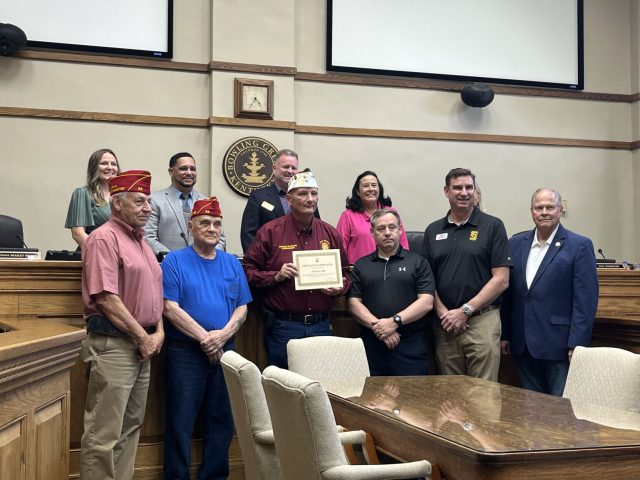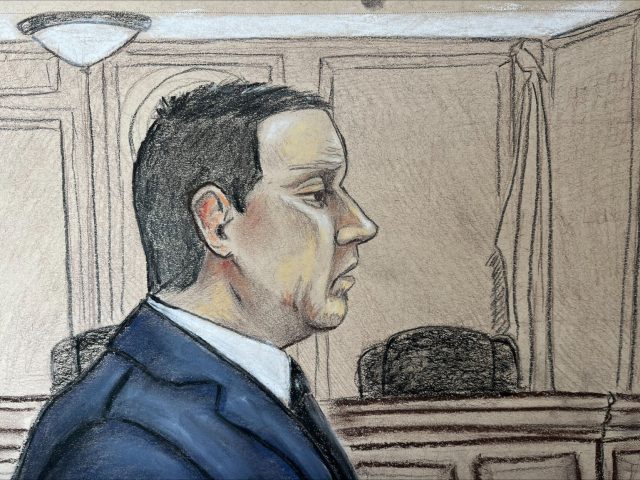Retired music educator and WKU graduate establishes scholarship
Published 12:10 pm Tuesday, April 29, 2025
Dr. Stephen King, a retired music educator and Western Kentucky University graduate whose time at the school has inspired him to pay it forward, has established a scholarship fund for music students.
“My wife and I had no children, so we agreed to offer our property to WKU for a music education scholarship,” he said.
The Dr. Stephen E. and Linda J. King Memorial Scholarship Fund, which goes into play at King’s passing, is to support music education studies for freshmen through graduate students.
Trending
King, a Hopkinsville native, grew up in Louisville and has lived in Catawba, Virginia, – “a little wide spot in the road about 15 miles outside of Roanoke” – since 1968.
After graduating from WKU, he served as a band director at Coeburn High School in Wise County, Virginia, for four years, during which time he met his late wife, Linda.
“I learned a lot of skills there,” he said. “I learned how to teach and also wound up with a lovely wife.”
He and Linda then moved to Roanoke County, where he served as band director for 17 years and earned a master’s in educational administration from Radford University. He then served 10 years as fine arts supervisor for Roanoke County Schools, with a year off in the middle to complete a doctorate at Virginia Polytechnic Institute.
King joined the music education faculty at Virginia Tech, where he spent 21 years.
Throughout his career, he was active in state music, music education and band and orchestra associations.
Trending
When King applied to WKU as a prospective music major, he said he remembered driving to the school with his best friend, Walt Lawrence, who had also applied to Western.
“Walt let me out in front of the music building,” he said in a news release. “When I got out of the car and walked toward the building, I passed five or six people from the curb to the building, and all of them said hello.”
At WKU, King was an instrumental music major whose primary instruments were the clarinet and bass clarinet, although he played bass drum in the marching band his senior year.
When King began his studies at WKU in 1960, he said that tuition and fees were very low – $25 a quarter to be exact.
“With that and housing, food etc. .. ., it was a stretch,” he said. “But I made it through, thanks to my mother. She took in laundry for ironing and sent me $15 every two weeks. I ate a lot of peanut better – and still do.”
King said that even with the support from home, he didn’t take school seriously enough.
And while he had no problem with the social aspects of college, it took him a while to get a handle on the academic part.
“The result was that I was a terrible student and almost flunked out the first year,” he said.
He was placed on academic probation his sophomore year and said he knew he had to “buckle down academically and find a job.”
So King got a job at what was then known as the South Hall Grill.
“This brought structure to me and my schedule,” he said. “Sometimes I worked the early shift having to be at the grill at 6 a.m. to slice sausage. Or I worked the late shifts until 9 p.m. We also ate on our shifts – that saved a lot of money.”
King said he was able to bring his grades up and was taken off of academic probation.
“Hardly a scholar, but at least safe,” he said.
The following year, King said the music department chair offered him a job as “turnkey” for the music department.
“Evidently, he saw something in me that he thought I could handle the responsibility,” he said in a news release. “I appreciated that because the pay I received helped get me through school.”
King’s job was to check the building each night and lock it up by 9 p.m.
“That had an impact on my social life but the pay got me through for two years and made things a bit easier on my mother,” he said. “She continued to take in ironing, but could miss a week occasionally knowing I had a paycheck coming.”
The school’s band director, Ed Knob, also had a strong influence on King.
“He was a taskmaster, but he wasn’t a tyrant, and there’s a huge difference in the two,” he said in a news release. “He had high expectations. He expected you to rise to the task and execute the task, whatever it was.”
King said that Knob’s mode of instruction was central to his teaching style.
“I appreciated that even more as time went on,” he said. “We became friends after I graduated.”
During his time at WKU, King joined the men’s music fraternity, Phi Mu Alpha, and was elected pledge master.
“My last two years, I made lifelong friends from that group,” he said.
His grades steadily improved over time and during his senior year, King was named to the dean’s list.
Another event that helped shape King’s future was being named to the Music Department’s Wall of Fame.
“It’s beyond me how that happened,” he said. “And it’s hard to believe … from flunky to dean’s list. I was certainly no scholar. I just worked hard, had some success and some failure. And fortunately more success than failure, over time.”
King said it’s difficult to narrow down his favorite memories of WKU, but among them was something that happened during his voice class.
“I found that I could sing very high,” he said. “The professor was the choral director and he noticed my range and invited me to join the Acapella Choir, to top vocal group my senior year. I did so and it was a great experience.”
He said another memorable experience was the Spring Tour the group took to the western part of Kentucky, including his hometown of Hopkinsville, where several members of his family showed up to support him.
Another memory King recalled was the marching band trip his senior year to the bowl game in Orlando, Florida.
“Aside from the great social moments was the band’s performance at the game,” he said. “It was outstanding and thrilling, with a great audience response.”
King said he is very proud of his time at WKU and that the leadership roles he had there prompted him to carry a message to his students about the importance of responsibility.
“I grew up from being a flunky to being nominated to be a member of the Music Department Wall of Fame,” he said. “I am still in awe of this. And the leadership experiences in the fraternity prepared me for the numerous leadership roles I have held in local, state and national organizations.”
King continues to visit the campus and said it’s a rare occasion that he walks down a sidewalk without someone saying hello.
“That doesn’t happen in most places,” he said in a news release. “It certainly doesn’t happen in the streets of Roanoke or Louisville, but people at Western respect people enough to say, ‘Hello. How are you today?’ That persists, and that tells me a great story about what’s happening at WKU that’s not happening in other places. If I can do something to help somebody else have a similar experience to what I had at Western, or in their career after they graduate, then it’s money well spent.”









